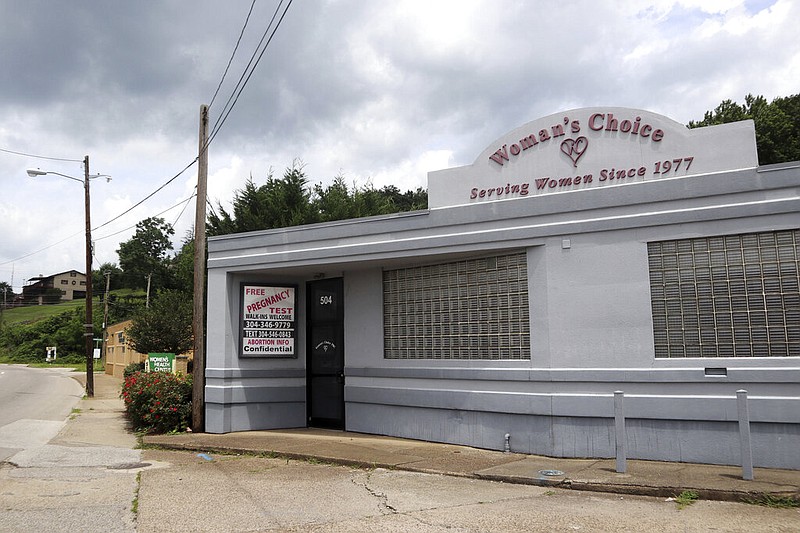Crisis pregnancy centers dot the Arkansas landscape nearly four times more than Sam's Clubs.
The nonprofit centers, also known as pregnancy care centers and often funded by community donations and faith-based groups, have spent decades providing information to pregnant women about alternatives to abortion.
After abortion became illegal in the state last month, center directors and advocates say the nonprofits are needed more than ever, and so is more funding to support the centers' programs.
Arkansas Attorney General Leslie Rutledge implemented the 2019 "trigger law" late last month after the U.S. Supreme Court overturned Roe v. Wade, the landmark decision that provided the right to abortion access in the United States. The trigger law bans abortions in Arkansas with the exception of saving the life of a mother.
More than 40 pregnancy care centers have emerged in the state during the legalization of abortion. The centers are often criticized for confusing names that use words such as "options," when the centers advocate for women to pick an option other than abortion.
Those who support women having a choice for an abortion often say the centers are misleading in more ways then the name.
"These fake clinics (that often lack any qualified medical staff) were a problem before the trigger law banned abortion in Arkansas, and they are not the solution to pregnant people receiving care now that abortion is illegal in the state," a statement from the Arkansas Coalition for Reproductive Justice reads.
But those who work at the centers say they are there to support women and young families in way that stretches beyond what choice a mother makes. They say the centers provide critical resources to pregnant women and young families, such as free counseling, parenting classes and baby items.
That won't change with the new law, clinic directors say.
"We are doing what we've always done -- helping women," said Maria Speer, executive director for Life Choices in Conway. "But we are expecting to help more women."
Speer says her center provides pregnancy tests and verification of pregnancy tests, which is often needed for government financial assistance. Items such as car seats and baby clothing also are given to those in need without any financial screenings, she said.
"Babies have lots of accessories," Speer said. "We can help them gain those items. We understand that this may have been unexpected for them. A majority of our clients that find us are thankful for all the services we provide.
"I would love for that to be what we are highlighted for."
Speer said there is a need for more support.
"I would love for us to offer more assistance for those struggling with things such as housing," Speer said. "I think that is something we all can speak to our legislators about: What other ways we can help our families as a state?
"If this is the stance we are going to take, let's back that up with support."
Earlier this year, legislation authored by Sen. Jimmy Hickey and passed by the Arkansas Legislature set aside $1 million to fund the private centers.
Gov. Asa Hutchinson said the funds became available Friday but officials are waiting for rules to be approved before the money can be released.
"We will continue to explore additional funding as needed," Hutchinson said. "At my direction, the Department of Human Services and the Department of Health are evaluating potential options to provide additional support for expectant mothers, foster care and adoption."
Charisse Dean, government affairs assistant for the Arkansas Family Council, said Arkansas is already behind in supporting the centers and the burden is becoming larger with the certification of the trigger law
Dean said Texas has approved $50 million to help centers and maternity homes.
There also will be thousands more women and families in Arkansas who need help, Dean said. She said vital statistics and Centers for Disease Control and Prevention data show about 3,000 abortions annually in the state.
"It is now time for us to step out and support women and families in all the ways that we can," Dean said.
Those in support of women having the choice regarding abortion say the centers aren't the best option to support women.
"Providing additional resources to these centers will not improve the reproductive health care of pregnant people or the children that will be born," the Arkansas Coalition for Reproductive Justice said in a statement. "The additional resources that would be needed to support the people forced to give birth and their children go far beyond the meager support these fake clinics provide."
The coalition says the centers often push adoption if women are unable to keep a child, and that will put a larger strain on the state's foster care system, which had 4,500 children in it as of May, according to Arkansas Department of Human Service data.
While abortions may now be illegal in the state, the war is unlikely over for the centers or organizations such as the coalition.
"For those people who decide that termination is the best option for themselves and their families, organizations like Arkansas Abortion Support Network are continuing their work to assist pregnant Arkansans to seek abortion care in other states," the coalition states.
Gayla Parker, executive director of the Pregnancy Resource Center in Southwest Arkansas, says she has heard there are many groups willing to help with travel for women to get abortions.
"Abortion for choice has not ended," Parker said. "They still have access to the chemical abortion pill from licensed doctors through telemed and can have one mailed. Our pregnancy counseling is still going to happen."
The biggest change will be the need to support more families who decide to keep a child, Parker said.
"We have moms who are going to need a lot of support, and we want to make sure we have the resources not just financially, but people resources to provide that," Parker said. "We are fighting to empower women."
